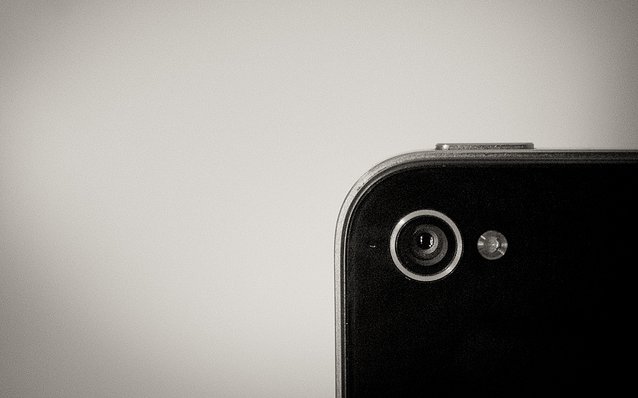
When MobileMedia Ideas formed in 2010, it was probably the biggest sign yet that the idea of "patent-trolling" had gone corporate. The company exists solely to get licensing fees from essentially the entire cell phone industry—it acquired about 300 patents from Sony and Nokia. It's headed up by Larry Horn, the same CEO who runs the MPEG-LA licensing pool.
In March 2010, MobileMedia sued Apple, HTC, and Research in Motion in separate lawsuits. The Apple case was first to head to trial. This morning, following a one-week trial and several hours of deliberation spread over three days, a Delaware jury returned a verdict that found Apple's iPhone 3 and iPhone 4 both infringe three patents that cover widely used smartphone features. The trial was only on infringement; a separate damages trial is still unscheduled.
Horn refers to the MobileMedia model as simply good licensing practice. But the model is the same one that has been criticized for a decade now in tech circles—create a shell company without any actual business, get patents, file lawsuits. Defendants are left with big legal bills and little leverage since they can't file an effective counter-suit against a plaintiff with no operations.
The three patents at issue cover very basic smartphone technologies: integrating a camera into a phone, call handling, and features like sending a call to voicemail. The patents infringed are numbers 6,070,068 (call handling); 6,253,075 (rejecting a call and putting it to voicemail); and 6,427,078 (integrating a camera into a smartphone.)
MobileMedia is closely connected to MPEG-LA. In addition to having the same CEO, MobileMedia is majority-owned by an MPEG-LA subsidiary. Nokia and Sony own a minority share of the company, which means they stand to profit from this court win against Apple.
The strategy of working with MobileMedia effectively lets Nokia and Sony go after their competitors without getting hit back. It's a full-scale embrace of the "patent troll" model by companies that have historically been the biggest targets of such suits.
It's an interesting week for a jury to find that iPhones infringe Nokia patents held by a shell company. On Monday, Nokia's chief of intellectual property voiced a full-throated defense of the patent trolling model at an FTC event. The company's unusual stance puts it squarely at odds with other corporate panelists, including HP, Cisco, and Rackspace.
The MobileMedia case is a clear sign of the times. There's so much money to be made from the model of "pure" patent enforcement through patent-licensing companies that it's practically irresistible. That's the case even to companies that have had to make repeated payouts under that model.
"Obviously, we're pleased, and we believe it was a very well thought out and justified verdict," said MobileMedia Ideas CEO Horn this morning in an interview with Ars. "Our real wish is that Apple will take a license. We're prepared to offer them one on reasonable terms."
The MobileMedia Ideas lawsuit against Apple originally had 10 patents in it, but the judge narrowed it down to three before trial. Horn declined to comment on MobileMedia's other ongoing lawsuits against HTC and RIM. He did say at least one patent from the Apple lawsuit is being used in those cases as well.
Horn answered a few other questions for us as well.
Ars: Why couldn't Nokia and Sony enforce these patents directly and sue in their own names?
Horn: I can't really speak to that. They could have. They chose to sell them to us and have them us monetize them. That's the area of our expertise.
Ars: If Sony and Nokia have these great smartphone inventions, why not convince customers of their value rather than sue? Does this represent competing in the courtroom rather than the marketplace?
Horn: The US Constitution assures that an owner of a patent will have the [exclusive] benefit of its invention for a certain time. Inventions happen through R&D and large investments. It's up to them to determine how and to whom they license it and wish to exploit it. It wouldn't matter if it was Nokia, or Sony, or MMI. It's a property right.
Ars: One of the inventors on the smartphone camera patent, Kari-Pekka Wilska, formerly of Nokia, took the stand as part of your case. Are you claiming that these inventors at Nokia actually created the smartphone-with-smartphone?
Horn: The patent goes to how the camera and the phone are integrated together to work seamlessly with a processor. It is the implementation of the camera with the phone in a way that made technical and economic sense, given memory limitations and anything else. The invention reads on how the camera is implemented in the smartphone—how it's integrated for purposes of storing a photo, for retrieving a photo, and messaging it, through e-mail or otherwise.
Ars: Another patent is on sending an e-mail to voicemail. Are you suggesting that before this patent was filed, there was no way to reject a call and put it through to voicemail?
Horn: This patent tells you how to do it in one step. The immediate result of doing so would terminate that call and throw it into voicemail. The whole point of patents is that one patent builds on another, in terms of the state of the art and understanding.
At the time of publication, Ars has reached out to Apple for comment via e-mail without response. This article will be updated should the company offer comment.
reader comments
120